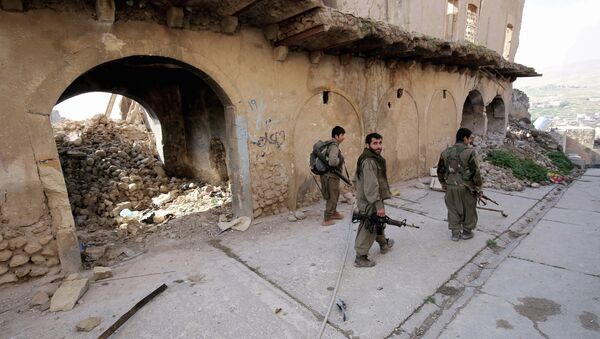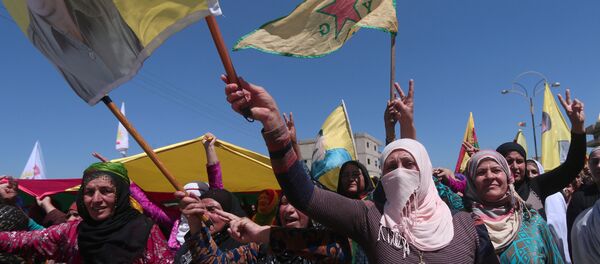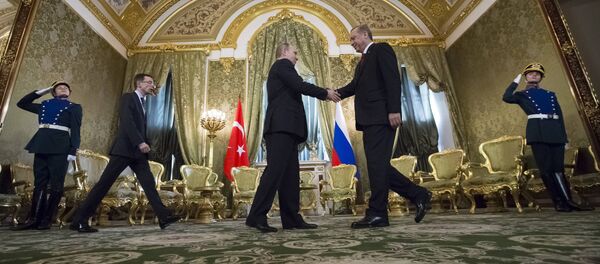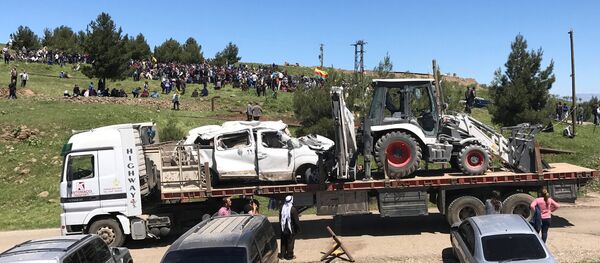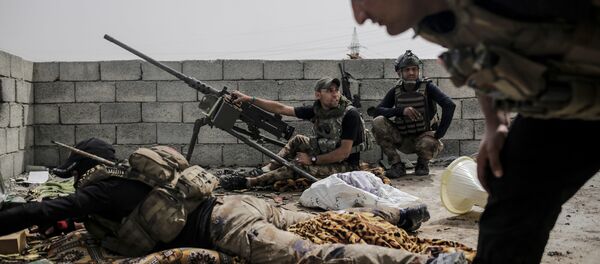In Iraq, the Turkish planes bombed Kurdish fighters from the Kurdistan Workers' Party (PKK) in Sinjar region. In Syria, the air strikes targeted the positions the Kurdish People's Protection Units (YPG) in the Karachok Mountains in the northeast of the country. YPG units remain a key component of the Syrian Democratic Forces (SDF), which are backed by the US and which have been closing in on Raqqa, the self-proclaimed capital of the terrorist organization Daesh (ISIS).
In Washington, the State Department said it was "deeply concerned" by the air strikes, which were not authorized by the US-led coalition Turkey is part of.
Russian officials responded by condemning the Turkish air strikes against the Kurds in Syria and Iraq.
"We were greatly disturbed by reports of Ankara’s operations. There is reason to believe that if it was not for the hasty US attack on Syria’s Shayrat Airbase, which was outside the bounds of international law, Turkey would not have carried out the recent strikes. It is necessary to put an end to arbitrariness on Syrian soil. We urge all international and regional partners to respect the sovereignty and independence of Syria and Iraq, as well as of other countries," Foreign Ministry Spokesperson Maria Zakharova said during her weekly briefing last Thursday.
Turkey, however, claimed that the airstrikes were aimed at preventing the Kurdish fighters from sending terrorists and weapons to Turkey.
Bilgay Duman, an expert with the Ankara-based Center for Middle Eastern Strategic Studies (ORSAM) firmly expressed his opinion that the Turkish operation in Iraq was legitimate.
"Across the border (with Iraq), terrorists are very active and Iraq is unable to eliminate them on its own, hence the Turkish operation is legitimate," he told Sputnik, adding that Ankara acted within its rights, as set up by international law.
He also commented on US deliveries of armored vehicles through Iraqi Kurdistan to Syria-based units of the Iraqi People's Mobilization Forces (PMF), also known as Popular Mobilization Units (PMU), saying that the Iraqi Kurds are an ally of Turkey.
"All the parties should be friendly in their relationship with Turkey as the cooperation with Turkey will bring its contribution to the guarantee of stability in the region. Both Russia and the US should render more support to Turkey, which is one of the strongest countries in the region," he told Sputnik.
Turkish politician and vice-chairman of the country's main opposition Republican People's Party Ozturk Yilmaz also suggested that the Turkish operation is legitimate.
"It is hard for me to understand the reaction to the operations conducted against the Kurdistan Workers' Party (PKK) for the sake of ensuring Turkey's own security. We think that it is important to review the operation in Sinjar within the context of the fight against terrorist organizations and as a full-fledged operation and not as any kind of demonstrative action," he told Sputnik.
The politician said he hopes that the attack on Sinjar won't have any negative impact on Ankara's relations with Russia.
"This operation won't have any negative impact on the negotiations. We, as a party which gives weight to the relationship with Russia, do not think that Moscow will take a strong stand on Turkey because of Sinjar. Our relations are very close now, therefore, Russia should be as attentive to issues that are particularly sensitive to Turkey, as Turkey is attentive to the issues which are sensitive to Russia," he said.
The former diplomat suggested that this attack won't affect the meeting between Presidents Erdogan and Putin. However he suggested that the bilateral contacts and following developments will define the tone and context of the further negotiations between Erdogan and Trump and will likely define whether there is going to be any meeting between these leaders at all, he concluded.
